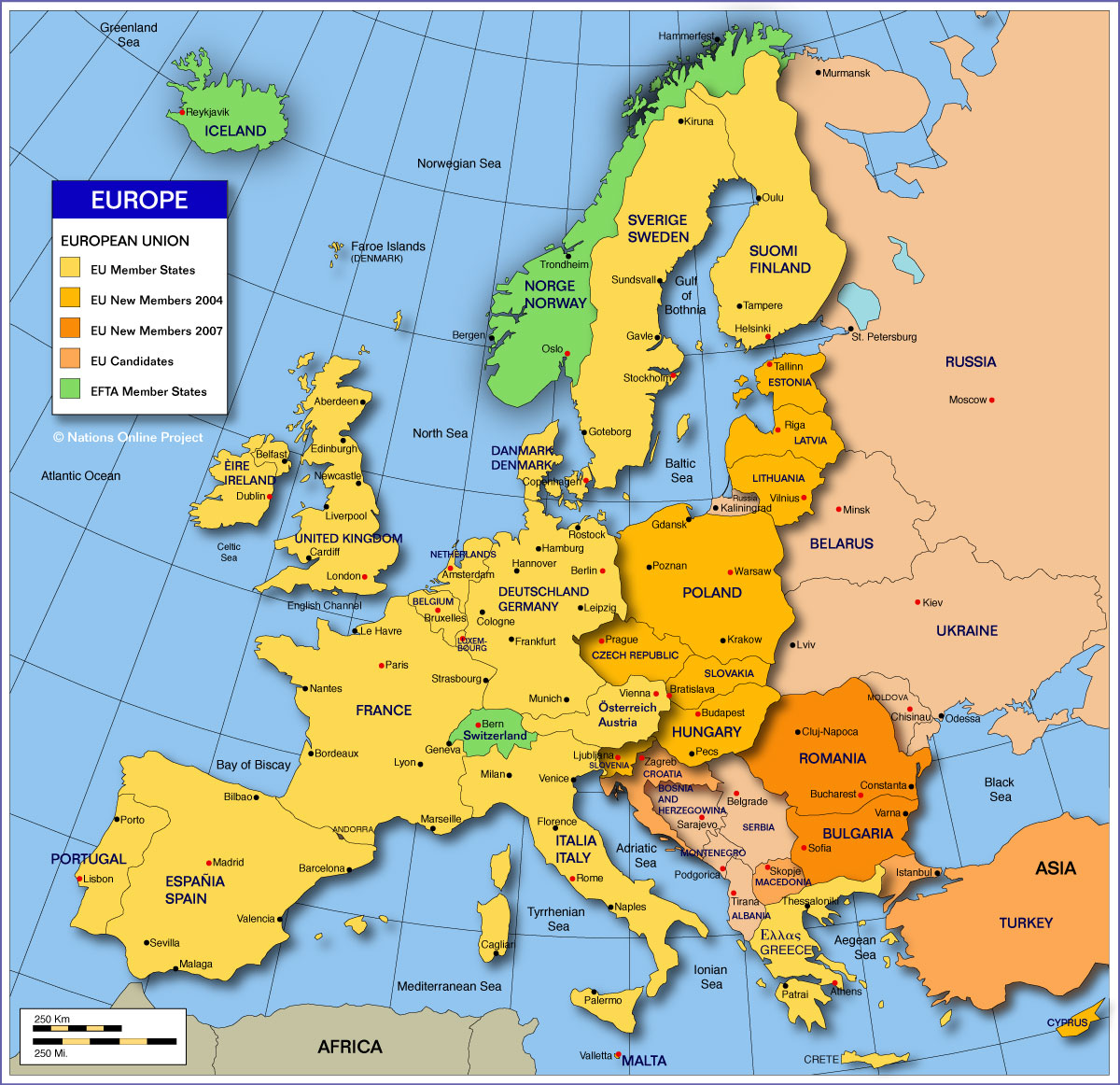Research firm Markit issued its PMI data for the eurozone for July. Most of the news was bad, although economists were heartened slightly by the fact that the core figure was no worse than in May. On the other hand, the rate of job loss was the highest in well over two years. Gross domestic product in the region remains weak enough that anxious companies continue to shed workers. Source: nationsonline.org
Source: nationsonline.org
Markit described the top line number:
Flash Eurozone PMI Composite Output Index at 46.4 (46.4 in June). Sixth successive contraction.
On the job front:
Employment fell for the seventh straight month across the Eurozone, dropping at the fastest rate since January 2010 as increasing numbers of firms cut capacity. Job losses gathered pace in both manufacturing and services, with the former posting by far the steeper rate of decline.
The most alarming aspect of the report was that Germany, the pillar of the eurozone economy, has started lose steam. Yesterday, Moody’s downgraded its outlook for Germany’s Aaa debt on worry that the recession in the region would eventually hurt it.
Commenting on the flash PMI data, Chris Williamson, chief economist at Markit said:
The flash PMI for July suggests the euro area downturn showed no signs of letting up at the start of the third quarter and is consistent with GDP falling at a quarterly rate of around 0.6%, which is similar to the rate of decline we expect to see for the second quarter.
The downturn is being led by an increasingly severe slump in manufacturing, where output is falling at a quarterly rate of around 1%.
Germany is now contracting at the steepest rate for three years, while the rate of decline in the periphery is also among the highest seen since mid-2009. The only sign of improvement was limited to the French services sector, which is likely to be due to domestic business settling down again after the general elections and could therefore prove temporary.
Companies across the region are cutting staff numbers at the fastest rate for two-and-a-half years as the outlook darkens. Service providers are now the gloomiest since March 2009, while manufacturers are slashing their inventories of raw materials in the expectation of ongoing weak sales in coming months.
Companies also cut prices to the greatest extent since early-2010 to help boost ailing sales, which should help alleviate inflationary pressures but may hit profits. Falling input costs should help protect profit margins in manufacturing, but costs continue to rise in services.
Contagion has moved from fears about debt to fears about economic activity, even in the strongest economy in the eurozone.
Douglas A. McIntyre
Sponsored: Want to Retire Early? Here’s a Great First Step
Want retirement to come a few years earlier than you’d planned? Or are you ready to retire now, but want an extra set of eyes on your finances?
Now you can speak with up to 3 financial experts in your area for FREE. By simply clicking here you can begin to match with financial professionals who can help you build your plan to retire early. And the best part? The first conversation with them is free.
Click here to match with up to 3 financial pros who would be excited to help you make financial decisions.
Thank you for reading! Have some feedback for us?
Contact the 24/7 Wall St. editorial team.



